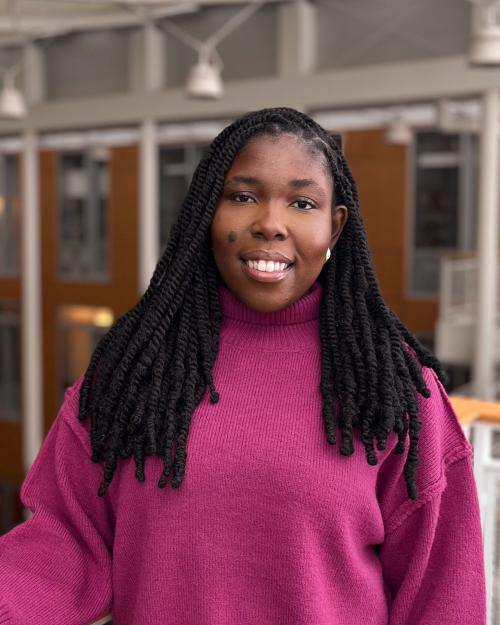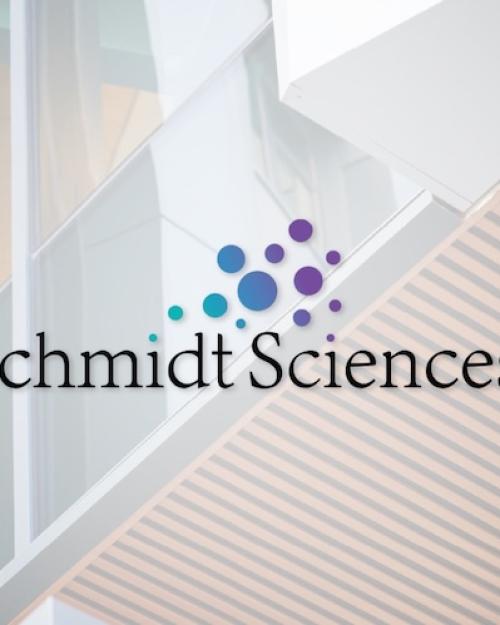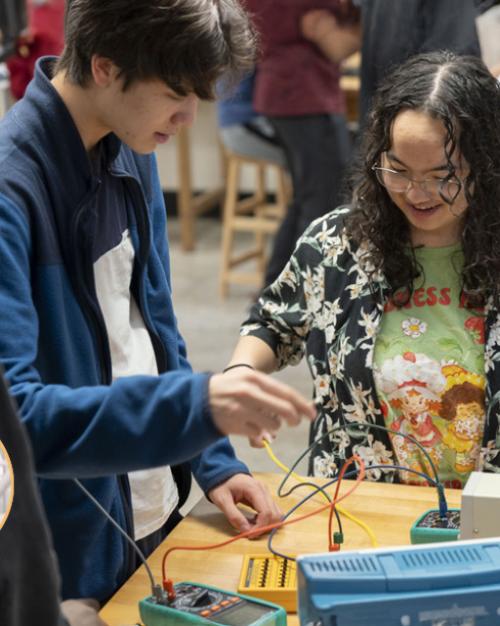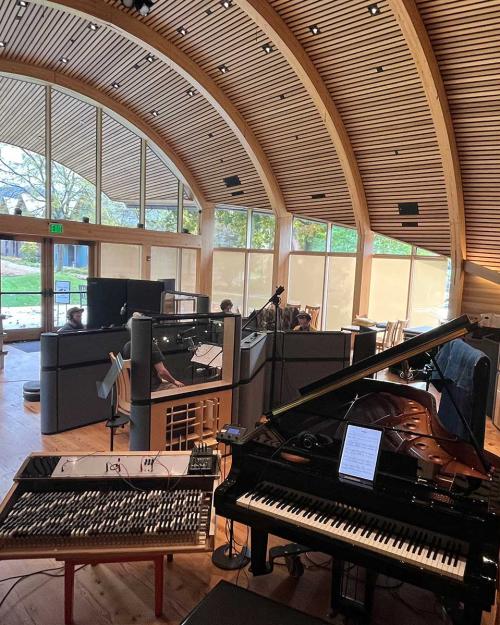A new album of music — played on several innovative new instruments created and restored at Cornell, including a Moog synthesizer —will debut June 28 from the band EZRA, which includes a Cornell faculty member.
The album is the culmination of the work of the Cornell ReSounds Project, which is funded by New Frontier Grant from the College of Arts & Sciences. The project works to establish Cornell as a center for the design and creation of new musical instruments and a hub for Cornell’s creative artists.
“Earth to Ezra” is being released by Cantaloupe Music. The album will be available for pre-order June 28 on BandCamp along with an exclusive download of the track, 'Mask', followed by the full album release in September.
The band’s style is genre-hopping, and its leader, Jesse Jones, is known for his microtonal instruments and compositions, so the Cornell-EZRA collaboration seemed obvious, said Xak Bjerken, professor of music and a member of EZRA. Bjerken and Elizabeth Ogonek, associate professor of music, direct the ReSounds project.
The album was recorded after a three-day creation session last October in a barn owned by musician Mark Stewart, who joined the band for this project. Other EZRA members include Jacob Jolliff, Craig Butterfield and Max Allard.
“This project is the most collaborative I have ever been a part of, taking me outside my comfort zone, from free improvisation to the groove of bluegrass and progressive rock,” Bjerken said. “Jesse Jones, who founded EZRA, studied with me 15 years ago here at Cornell, and now I am the one learning so much from him. Each of the players have such strong gifts, and each contributed so much to an album that is meant to be listened to as a complete journey taking the listener from one style and genre to another.”
A centerpiece of the album is the rebuilt and rewired Moog synthesizer, designed by theorist David Rothenberg and built by renowned synthesizer pioneer Robert Moog, Ph.D. ’65. After an eight-month restoration process by Travis Johns, the 478-key instrument debuted during an Oct. 24, 2023 concert in Barnes Hall. It’s now housed in Lincoln Hall and graduate student composers are experimenting with its unique tonal range.




